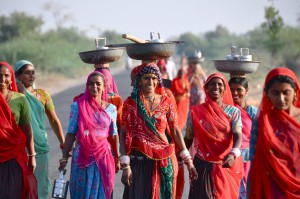Legal recourses and access to justice

A rights-bases approach to social protection requires that people can effectively pursue legal recourse and access justice.
Legal access to complaint and appeal procedures provides persons with the ability to appeal in case of refusal of a benefit or complain as to its quality and quantity. According to Recommendation No. 202, complaint and appeal mechanisms should be impartial and independent (e.g. appeals are heard by an authority that is independent of the administration that reviewed the initial complaint); fair; respect due process; transparent (e.g. decisions should be duly motivated); effective in answering complaints and appeals and providing remedies; simple; and rapid (i.e. administrative procedures should therefore not be so burdensome or so excessive in time so as to postpone the reception of benefits or act as a deterrent to filling a complaint). Furthermore, such mechanisms should be financially and geographically accessible and have due regard for obstacles and limitations persons may face. This also means providing flexible channels to submit complaints. Finally, the costs involved in accessing such mechanisms should not be such as to cause financial hardship to the claimant or prevent persons from filing complaints. Access to complaint and appeal procedures should therefore be free of charge to the applicant.
Photo credit: “working women” by Shreyans Bhansali (CCBY 2.0 via Flickr).
Protecting the Right of Access to Social Security Benefits
States must ensure the right to social security for all without discrimination of any kind. Article 2(1) of the International Covenant on Economic, Social and Cultural Rights (ICESCR) and Article 26 of the Convention on the Rights of the Child oblige States Parties to take effective measures, within their maximum available resources, to fully realize […]
Using Human Rights in the Courts to Broaden Social Protection—The South African Example
Human rights have an important role to play in supporting the objectives of social protection which include the prevention of poverty and inequality, ensuring solidarity and inclusion, and creating economically and socially fairer societies. They offer a normative basis and a legal imperative for requiring that states realize the right to social security for their […]
The Art of “Bureaucraft”: Why and how bureaucrats respond to citizen voice
Despite the recent increase of empirical research and conceptual development in transparency and accountability, much of this has been on the side of citizen action, looking at why and how citizens mobilize around accountability demands and at what makes their actions successful. Comparatively, there has been much less work exploring the state side of the […]
Social Accountability in the Delivery of Social Protection
This report reviews the literature on social accountability in the delivery of social protection. It is the second output of the Social Accountability in Social Protection policy research project that Development Pathways has been contracted to carry out by DFID. The purpose of this review is to bring together existing evidence and generate new evidence […]
Social Security for All. Investing in social justice and economic development
This paper sets out the policy vision of the ILO that underpins its activities in the context of the Global Campaign on Social Security and Coverage for All. The objective of this policy briefing is to contribute to the global debate between social security stakeholders, researchers, practitioners and decision-makers as to how to provide a […]
Access to justice for persons living in poverty: a human rights approach
People living in poverty face numerous daunting barriers to access to justice, denying them the chance to challenge crimes, abuses or human rights violations committed against them. This situation exacerbates their poverty and social exclusion, in a vicious circle of impunity, powerlessness and injustice. Empowering people living in poverty to claim their rights is therefore […]

